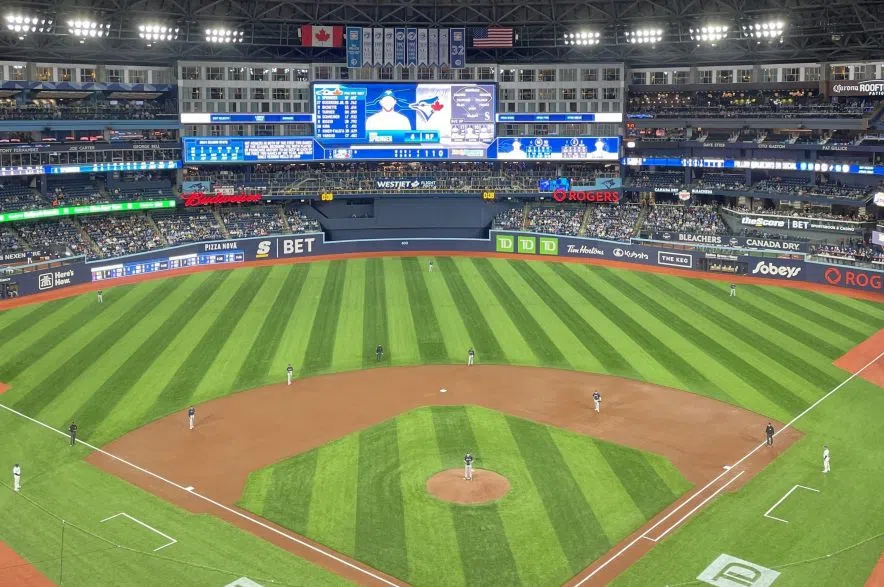Keeping a pulse on the World Series might get your heart racing, but one cardiologist warns about the toll it can have on some people.
Dr. Jeffrey Wilkinson, a cardiologist at the South Saskatchewan Heart Clinic, is no stranger to the excitement of a Blue Jays game. He stayed up to watch the majority of Monday night’s 18-innings and said there were moments where he raised his voice, cheered, fist pumped and hid his face in his hands.
Read more:
- Blue Jays fans in Saskatchewan celebrate as Toronto ties up World Series 2-2
- Toronto Blue Jays beat L.A. Dodgers 6-2 in Game 4 to tie World Series
- Why Shohei Ohtani’s fans in Canada and beyond say he’s ‘bigger than baseball’
“There’s a lot of emotions involved with watching these sports,” he said.
While those emotions are part of the fan experience, according to Wilkinson, for some people, they can bring on cardiac symptoms.
“When patients are under emotional stress, their heart rate and blood pressure are higher,” he said.
Some fans might develop symptoms of chest discomfort, indicating a potential angina, a structural issue with the heart. That could feel like heaviness in the chest, a burning or squeezing sensation, or radiating discomfort into the neck, arm or back, according to Wilkinson.
He said those experiencing cardiac symptoms should make an appointment with their doctor, because it could be a sign of coronary artery disease, which is “the number one killer of people in Canada.”
Broken Heart Syndrome
There’s also the potential that these high-stakes games could trigger Takotsubo cardiomyopathy in some fans, also known as Broken Heart Syndrome – not to be confused with the feeling of heartbreak fans have when their team loses a game.
Instead, Broken Heart Syndrome happens when a person is under “a huge amount of emotional stress.”
“A patient will feel an unrelenting feeling of discomfort in their chest as though they’re having a heart attack,” Wilkinson said. But unlike a heart attack, Broken Heart Syndrome isn’t because of a blockage.
It’s caused by part of the heart ballooning, or getting enlarged. Rather than retaining its “normal bullet shape,” Wilkinson said the heart will look like a Japanese octopus trap. It’s how the syndrome got its name, with “takotsubo” translating to octopus trap in Japanese.
Wilkinson said it’s happened to patients threatened with a weapon, engaged in a heated political argument, or even one who’d gone “shopping with her mother-in-law.” While he’s never seen it happen because of a sports game, he said it’s possible.
Unlike chest discomfort, though, Wilkinson said Broken Heart Syndrome is fairly rare, and those with active, ongoing symptoms of chest discomfort need to call emergency services.
Even for those fans without cardiac symptoms, the elevated heart rates that come with the World Series isn’t a replacement for old-fashioned blood pumping.
“I wouldn’t necessarily describe it as exercise,” Wilkinson said about watching the Jays. He, instead, recommends a healthy diet and regular physical activity for heart health.











